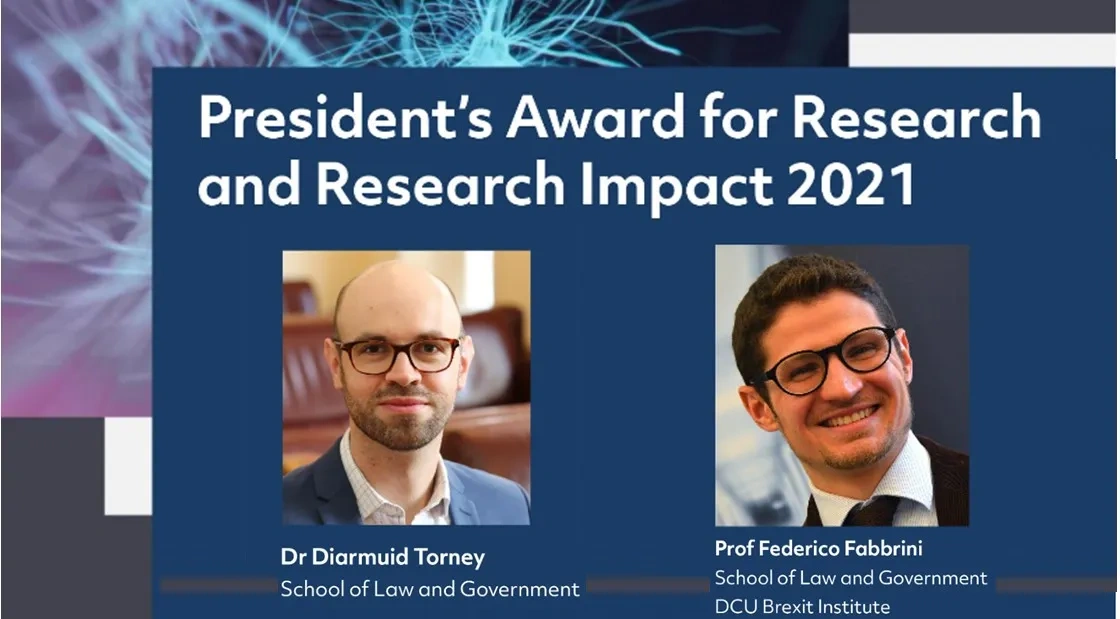

School of Law and Government scoops two President’s Awards for Research and Research Impact
Congratulations to two of our colleagues in the School of Law and Government Professor Federico Fabbrini and Dr Diarmuid Torney on receipt of their President’s Awards for Research and Research Impact 2021. We also extend our congratulations to all of those nominated in this year’s awards across the Faculty of Humanities and Social Sciences.
The 2021 President’s Awards for Research and Research Impact were presented to recipients from across the university who have been involved in ground-breaking research across a variety of areas including climate change and Brexit.
The Faculty's Associate Dean for Research, Prof. Sharon O'Brien, said:
We are very proud that two of the President's Awards for Research and Impact came to the Faculty of Humanities and Social Sciences today and to one school, the School of Law and Government, no less! Prof. Fabbrini's research on the law and politics of Brexit, among other topics, is so important and timely. Dr Torney's research on climate action is equally essential and has registered an important impact. Sincere congratulations to both colleagues and, indeed, to all of DCU's awardees.
About the Awards
The Awards for Research recognise outstanding achievement and research excellence over an extended period of time, while the Awards for Research Impact are presented in recognition of research work, often a single project, that has had a significant impact on society.
DCU at the centre of Brexit debate
Prof. Federico Fabbrini, School of Law and Government and Director of the DCU Brexit Institute, is one of the world’s leading authorities in European fundamental rights, economic governance, and the law and politics of Brexit. His establishment of the Brexit Institute has placed the University at the centre of the crucial debate about Brexit in all its guises.
Driving Ireland’s climate change law
Dr Diarmuid Torney, School of Law and Government, was awarded for his project ‘Research to underpin the strengthening of Ireland’s climate change law.’ The amended Climate Action and Low Carbon Development Bill recently presented by the Irish government is ambitious and marks an about-face by Ireland as an embarrassing laggard to potential world leader in this area. Diarmuid’s influence on our climate law is reflected in the language used by policymakers which align with his proposals, following many meetings and presentations to the politicians and officials who drafted the bill. It is hard to imagine work with a greater and clearer impact than Diarmuid’s.
